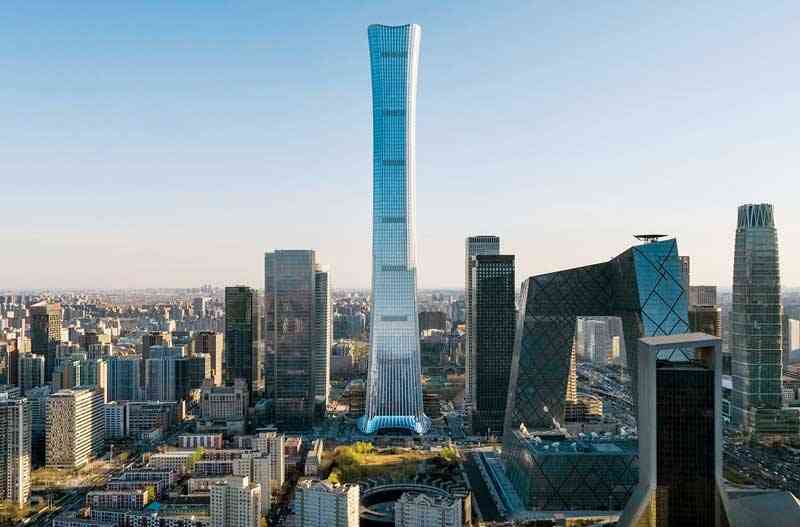
For several years now, I have had a file on my computer named “China — Has the Moment Arrived?” But I think I missed the moment — or rather I forgot that these things aren’t a moment, they are a process.
It has been obvious for years that the glory days of high-speed economic growth were over in China, but I was waiting for some striking event that would symbolise and summarise the end of the boom, like the bursting of the price bubble in 1992 marked the end of Japan’s economic “miracle”.
There wasn’t any such event, of course. It’s just a gradual decline in everything economic, partly hidden behind deliberate obfuscation by the Chinese authorities.
For example, they predict that the Chinese economy will grow by 5% this year. That rate, sustained over time, would imply a doubling time of 14 years. Is there anybody on the planet who believes that the Chinese economy will be twice as big in 14 years? Half again as big? The real growth rate for the past few years may have been zero.
China’s population started to drop last year, for the first time since the great purges and man-made famines of the early Communist years. The decline will accelerate relentlessly as it heads down towards half the current number by the end of the century. The birth rate is just over one child per completed family and is still falling.
Yet, at the same, time there are no jobs, or at least few appropriate jobs, for the 11,9 million young people who graduated from universities and colleges last year. The mood among the young seems to be quiet despair: “lie flat” or become “full-time children” (move back home and live with your parents).
Economist Zhang Dandan at Peking University estimates that youth unemployment could be as high as 46,5%, but the government’s only response has been to stop publishing official figures about it. The country is stuck in the “middle-income trap”, with per capita GDP around US$10 000, and nobody has a plan to do anything about it.
A plan seems pointless when fully a quarter of the economy is made up of the real estate sector, which has over-built housing to such an extent that it would take 10 or 12 years to fill the unsold properties even at the rate they were selling at a decade ago, when the population was still growing. Thousands of apartment towers will never be filled.
- The brains behind Matavire’s immortalisation
- Red Cross work remembered
- All set for inaugural job fair
- Community trailblazers: Dr Guramatunhu: A hard-driving achiever yearning for better Zim
Keep Reading
You can read a litany of negative judgments like this on China any day of the week in the Western media, followed by predictions that the regime is in trouble and heading for collapse, or alternatively that it will go to war to distract its restive population. The judgments are all true, but they do not necessarily lead to a dramatic outcome of either kind.
China is not suffering some measureless disaster. Nobody is starving and most adults have some kind of work to keep them busy. It’s just that the bounce has gone out of everything. The future hasn’t exactly been cancelled, but it’s a lot less attractive and exciting than it seemed 10 or 20 years ago.
What are the implications of this for the regime and the world? Probably smaller than the pundits are saying.
Japan and the other East Asian “miracle” economies went through similar big, permanent declines in the growth rate 20-odd years ago, and they neither invaded the neighbours nor collapsed into chaos.
China isn’t all that special, despite the anachronistic survival of a 20th Century Communist regime at the head of an otherwise typical Asian capitalist state. The heated speculation about it replacing the United States as the premier global power was no more plausible than the similar hype about Japan 30 years ago, or Russia 70 years ago.
Mere disappointment may lead to a change in government in democracies, but it rarely does so in autocracies. China’s highly developed system of mass surveillance and associated privileges and punishments would deter most people from action even if things get a lot worse than they are now.
So there is no imminent threat to the regime’s survival, which probably means that there is little risk of a Chinese military adventure against Taiwan to distract an angry and rebellious population. Things in China aren’t great, but they are not that bad.
Of course, I could be wrong. President Xi Jinping is 70, just one year younger than Russia’s Vladimir Putin, who invaded Ukraine mainly to leave a glorious “patriotic” legacy behind him. (“He reunited all the Russias!”)
Xi seems a more pragmatic man, but it’s a dangerous age.
- Dyer is a London-based independent journalist. His new book is titled The Shortest History of War.






